Company: Marriott International Inc.
CEO: Arne M. Sorenson
Founder: Alice Marriott and J. Willard Marriott
Year founded: 1927
Headquarters: Bethesda, Maryland
Employees (Dec 2019): 174,000
Ticker Symbol: MAR
Type: Public
Annual Revenue (FY19): $20.97 billion
Profit | Net income (FY19): $1.27 billion
Products & Services: Sheraton Hotels and Resorts | Starwood | Westin Hotels and Resorts | Ritz-Carlton Hotel Company | Aloft Hotels | Courtyard | Le Meridien | Four points | Delta Hotels | Gaylord Hotels | Fairfield | Renaissance | Residence Inn | Elegant Hotel Group
Competitors: Hyatt Hotels Corporation | InterContinental Hotel Groups |Wyndham Worldwide Corporation | Choice Hotels International Inc. | Four Seasons Hotels Limited | Hilton Hotels and Resorts | Accor Hotel | Fairmount Hotels and Resorts
Fun Fact: Did you know that Marriott started as a root beer stand the expanded into a restaurant, hotel, and finally grew to a global conglomerate with hundreds of hotels and resorts spread across the world?
Regardless of the industry, growing from humble beginnings as a root beer stand to one of the most respected brands globally requires resilience, commitment, hard work, and effective strategies at every turn. It is a dream for many businesses but a reality for a chosen few, including Marriott International Inc.
Whether you are seeking to start or grow your business within or outside the hospitality industry, you can learn a lot from Marriott SWOT Analysis. The company’s strengths, weaknesses, opportunities, and threats provide invaluable insight into effective operations.
Here is the Marriott SWOT Analysis:
Marriott’s Strengths
- Global Presence: Global operations and presence not only increases revenues but also spreads the risk. If one revenue from one region decline, the company can rely on the other regions. Marriott operates across 127 countries and territories globally.
- Market Leadership: Marriott is the largest hotel chain globally with over 30 brands, 81 hotels, and $25.1 billion in assets under its impressive portfolio and 6,500 properties offering over 1.2 million rooms across the globe. Being the largest ensures it enjoys the full benefits of economies of scale.
- Excellent Reputation: Marriott is ranked #44 for diversity, #100 just companies, #243 world’s best employers, #84 top regarded companies and #38 best employers for women. Also, it has been one of the regulars on the Fortune 500 list for 21 years and was ranked #151 in 2019.
- Strategic Partnerships: Marriott partners with some of the biggest players in different sectors, which has enabled the company to undercut the competition. It recently partnered with Alibaba to enable millions of customers to book directly without deposits.
- Profitable Acquisitions: From Ritz Carlton to Starwood, Resorts Worldwide, Bulgari Hotel, and Gaylord, Marriott has expanded its portfolio, revenues, and profits through the acquisition of highly profitable brands.
- Loyal Customers: A section Marriott’s customers will not even consider switching to any other hotel. The company has nurtured one of the most loyal customers using a combination of strategies, including one of the largest loyalty programs.
- Strict Code of Conduct: The hotel service business is highly sensitive to a wide range of issues. From cleanliness to etiquette and punctuality in service delivery, Marriott’s strict code of conduct ensures delivery of all these ingredients of success.
- Highly Innovative: Marriott delivers value by exploiting innovation and technology effectively. From Villas and Homes venture to wallet-free experience, innovative operations are at the core of Marriott’s success. It ranked #21 Most Innovative Company.
Marriott’s Weaknesses
- Ineffective Data Protection: Consumers distrust and avoid companies that fail to protect their data. In 2018, the guest reservation database of Marriott’s Starwood was hacked and personal information of up to 500 million people was exposed, including names, addresses, phone numbers, passport numbers, and so on.
- Poor Positioning: Marriott is marketed and structured as a family-focused business from market position to management. The future of the hospitality industry lies in young single millennials, which makes Marriott’s family-focused positioning a major weakness.
- Negative Publicity: The Service industry is sensitive to public perception. Marriott’s reputation has been tainted in 2017 by the decision to rescue only its hotel guests from St. Thomas after Hurricane Irma and kept non-guests off the cruise ship even though it was half-empty.
- Civil Lawsuits: Issues with the law always portray companies in a bad light. Marriott was sued for blocking customers’ personal Wi-Fi citing security concerns and was fined $600,000.
- Too Strict: Although strictness is vital for success, breathing down the neck of employees is a sure way to bring down morale, productivity, and efficiency. Marriott requires employees to follow the code of conduct to the letter and fired an employee in 2018 for ‘liking’ a tweet that offended China.
Marriott’s Opportunities
- Shifting Demographics: As more and more millennials and Gen-Z enter into the consumer market; the company has the opportunity to grow its customer base by positioning as a cool youthful brand. Millennials are already delivering change in the hospitality
- Focus on Emerging Economies: Demand for high-end hospitality services in developing countries is increasing rapidly and presents lucrative opportunities for hotel chains like Marriott.
- Diversify Offerings: Satisfying customers of the digital age goes beyond offering basic services. They demand personalized services. Marriott can differentiate itself from competitors by offering customized services that cater to the specific needs of customers.
- Expand into Related Sectors: The hotel chain business is linked to a wide range of sectors from tourism to catering, real estate, and many more. Marriott can offer houses for hire like Airbnb.
Marriott’s Threats
- Global Pandemic: Marriot has already lost 92% of its profits as the number of customers declines due to the pandemic. If the virus becomes a permanent reality or comes in a second wave, Marriott’s profitability will continue to suffer.
- Stiff Competition: The hospitality industry is highly competitive. From Hilton to Novotel and many more, renowned hotel chains can reduce Marriott’s market share drastically if they get a chance.
- Looming Recession: Countries are sliding deeper into recession with millions of jobs wiped off in a short period. The adverse effects of the global recession have proven in the past to be particularly destructive to companies in the hospitality industry.
- Trade Tension: With the widespread adoption of isolationism, global conglomerates and companies like Marriott are perfect targets for tariffs by disgruntled populist governments. If Marriott is used as leverage or pawn in the trade war, it can a substantial portion of its revenues.
- Risk of Terror Attacks: Marriott is a five-star accommodation facility that attracts customers of different nationalities. Terror groups target star-rated hotels with a large number of foreigners.
References & more information
- Ting, D. (2019, March 18). How Marriott Plans to Supercharge Growth Starting With 1,700 New Hotels in 3 Years. Skift.
- Touryalai, H. (2019, May 15). World’s Largest Hotels 2019: Marriott Leads Again, Hyatt & Accor Rise. Forbes
- Fortune 500 (2020). Marriott International. Fortune
- Schaal, D. (2019, July 29). Marriott’s Alibaba Joint Venture in China Is Part of Its Direct-Booking Strategy. Skift.
- Marriott Inc. (2019, December 09). Marriott International Completes Acquisition of Elegant Hotels Group. PR News.
- Tenny, L. (2019, February 13). Marriott Launches Bonvoy Loyalty Program With Experiential Perks. Meetings Today
- Rai, S. (2018, March 4). Marriott employee ‘fired’ for Twitter error speaks out. Hotelier Middle East
- Forbes Ranking (2020). Company: Marriott International. Forbes
- Gressin, S. (2018, December 4). The Marriott data breach. Consumer Information
- King, R. (2019, May 30). Hoteliers, Take Note: Millennials Own Your Future. Hospitality Net
- Wootson, C. R. (2017, September 12). Why a Marriott ship was forced to leave stranded tourists behind. Washington Post
- B. Alliance. (2019, May 29). Marriott International fined $600,000 for blocking guests’ Wi-Fi. Wireless Broadband Alliance
- Wayne, M. (2018, March 3). Marriott Employee Roy Jones Hit ‘Like.’ Then China Got Mad. The Wall Street Journal
- Reitknecht, R. (2019, April 23). The Power of Millennials in Hospitality for Delivering Game. Hospitality Net
- Press Release. (2020, March 6). Luxury Hotel Market Trends 2019, Demand, Opportunities, and Forecast to 2025. Market Watch
- Merlino, D. (2019, March 27). Why hoteliers should jump on the personalization bandwagon. Phocus Wire.
- Glusac, L. (2019, April 29). A Marriott Division goes Head-to-Head with Airbnb. The New York Times
- Garber, J. (2020, May 11). Marriott profit plunges 92% as coronavirus zaps travel. FOX Business
- Mariano, K. (2018, May 30). The two biggest battles in hospitality: How will Marriott compete? Travel Media
- Stankiewicz, K. (2020, March 24). Marriott CEO: Coronavirus outbreak worse for business than the 9/11 and 2008 financial crises combined. CNBC
- Grant, K. (2018, March 8). How Could a Trade War Impact Marriott’s Bottom Line? The Street
- VOA News. (2020, February 27). The US Warns of Possible Terrorist Attack in Nairobi. VOA News.
- Featured Image by Michal Mrozek on Unsplash
Tell us what you think? Did you find this article interesting?
Share your thoughts and experiences in the comments section below.

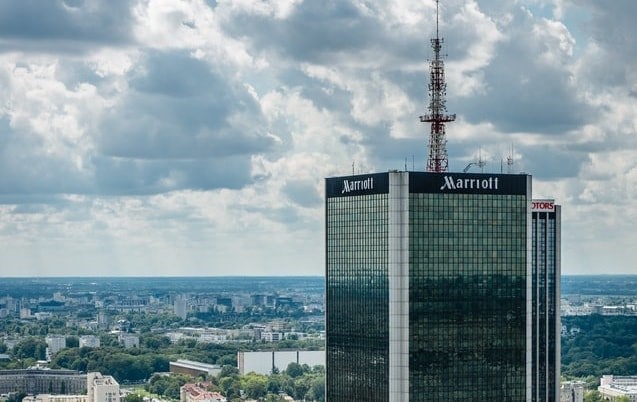
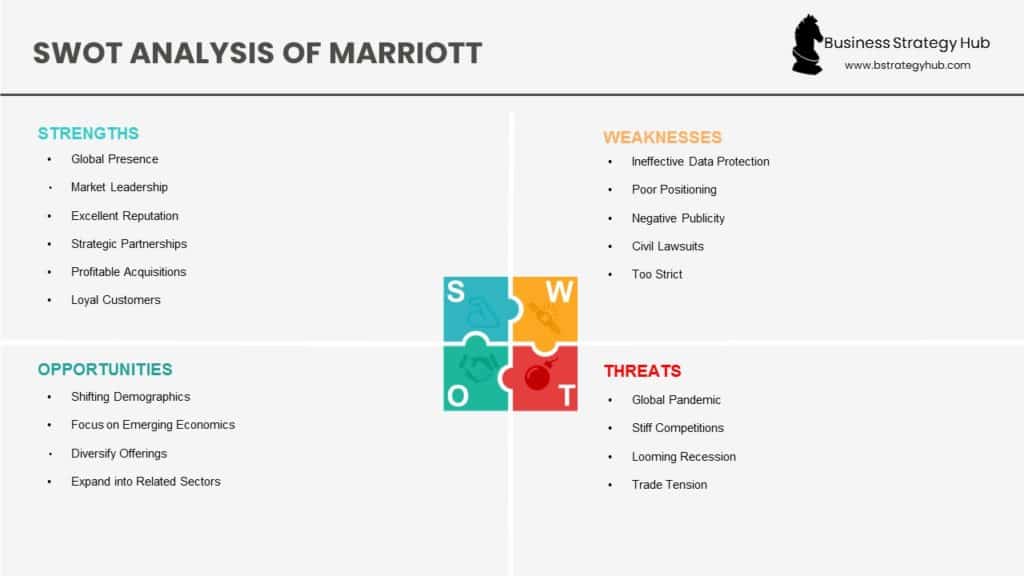
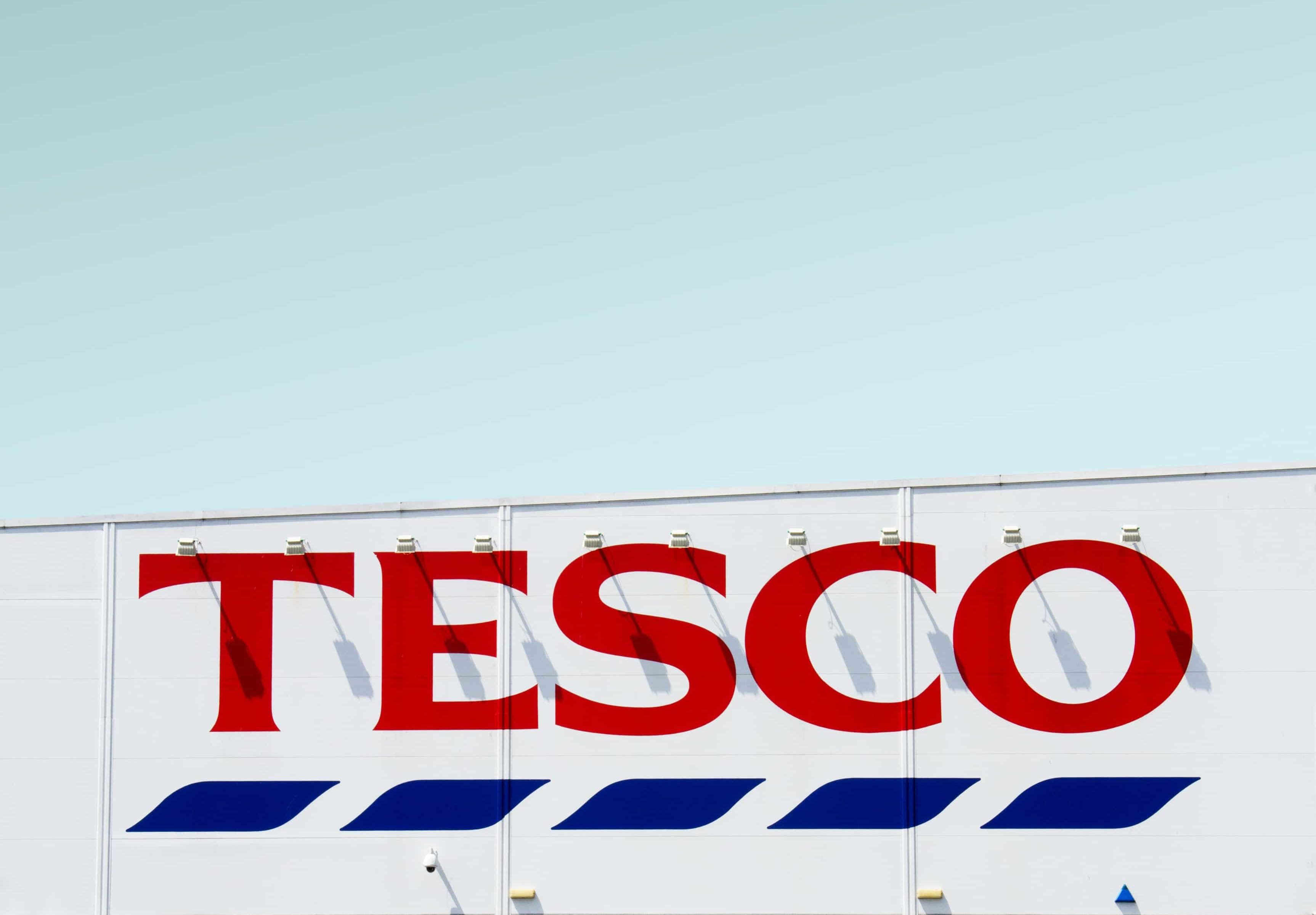


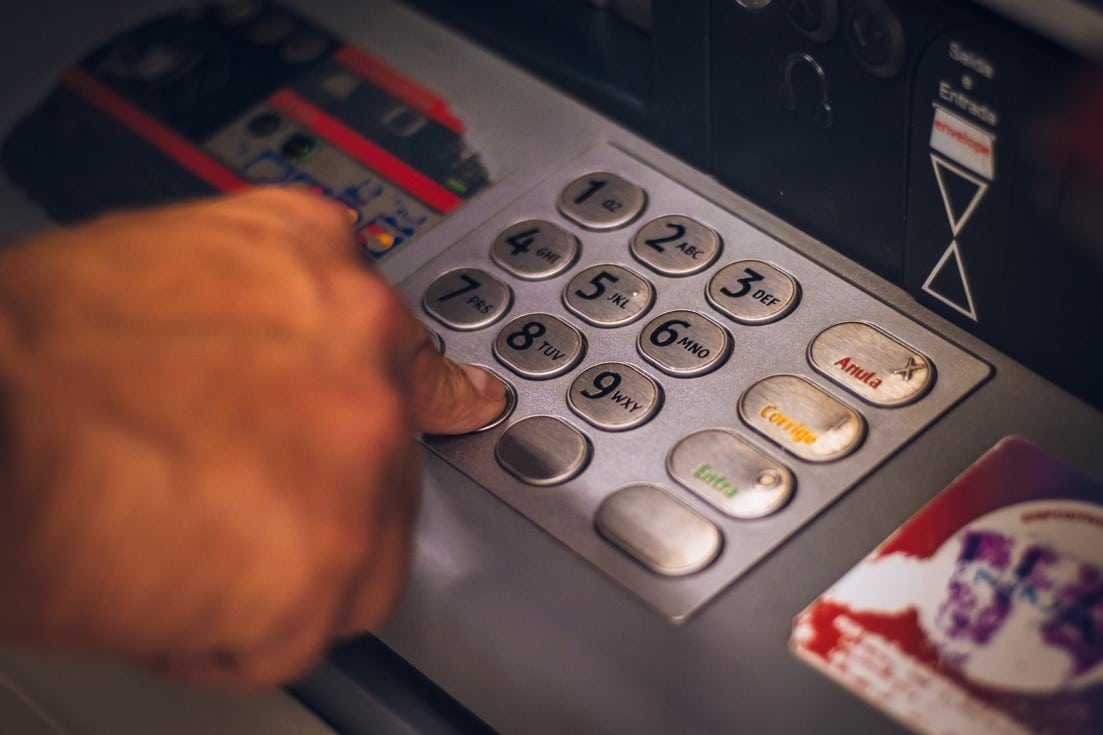





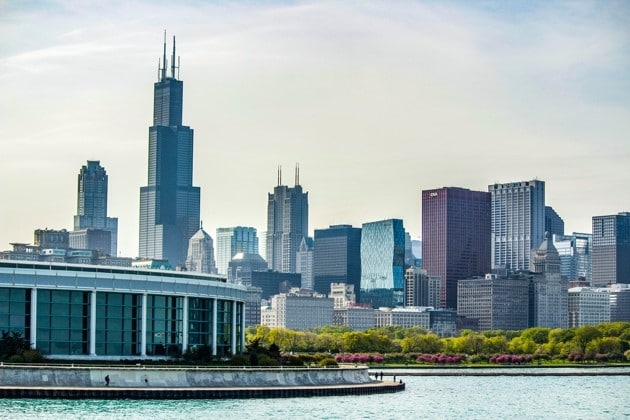
Add comment